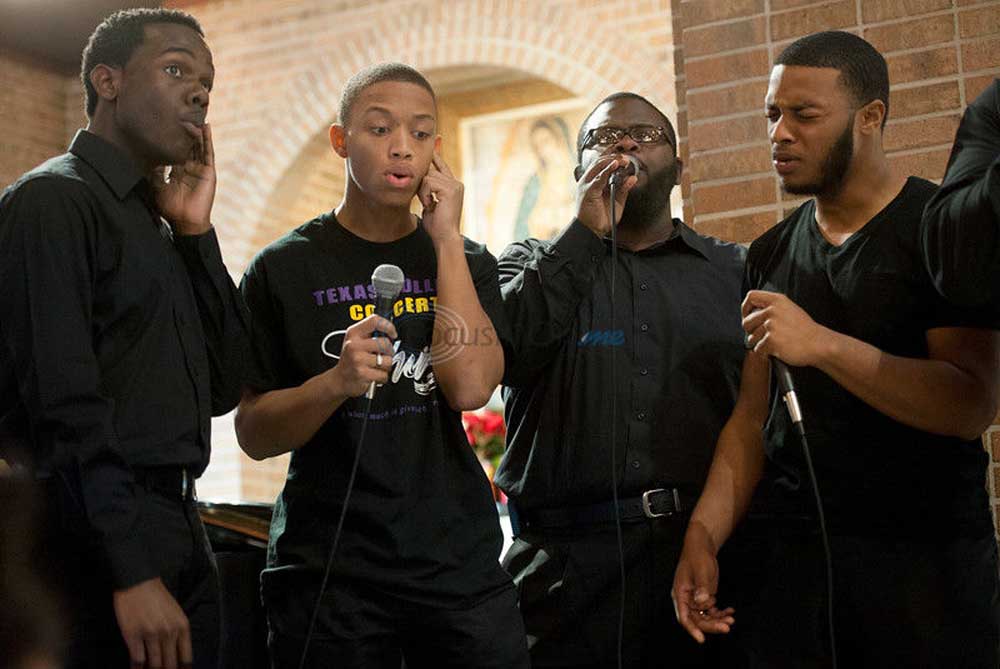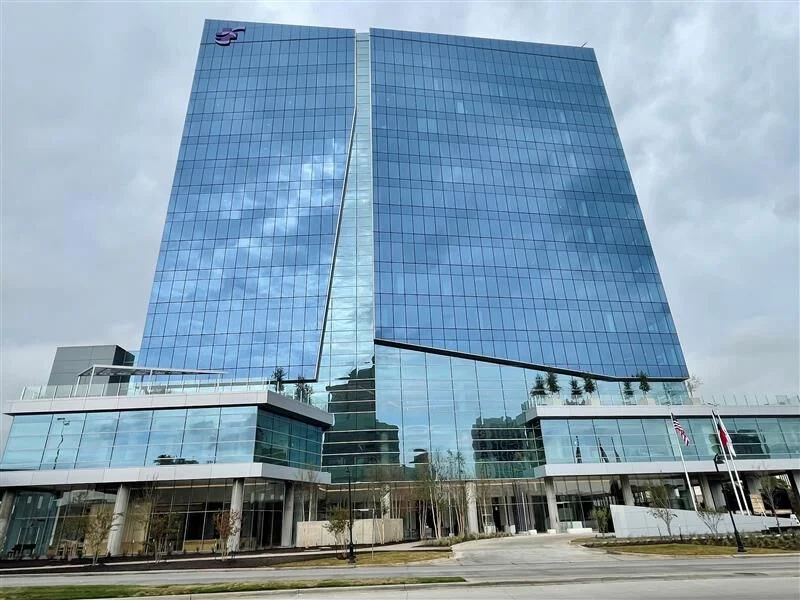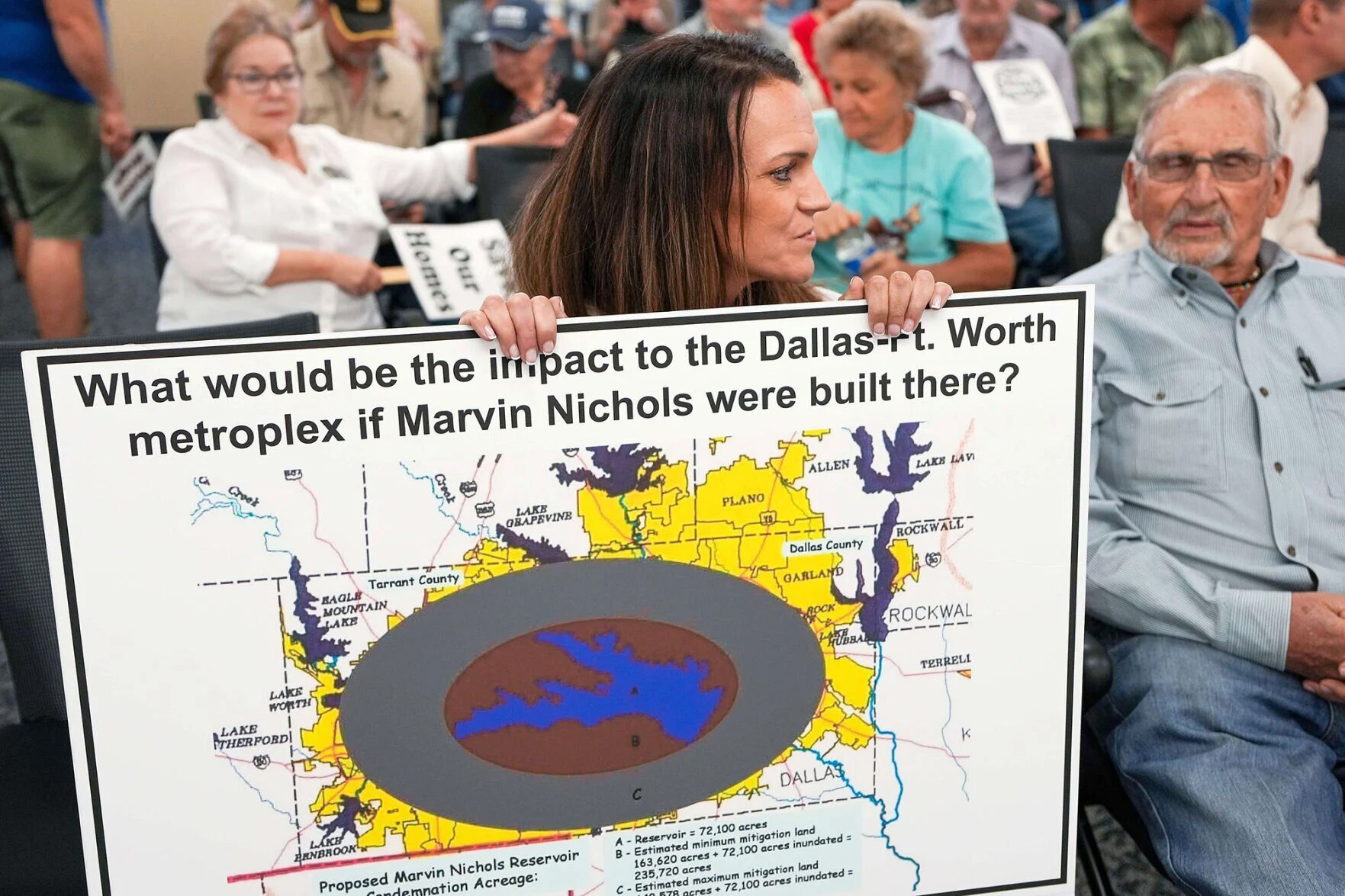Speaker: ‘Black, white, us conversation’ an opportunity to discuss tough issues
Published 8:37 pm Monday, January 19, 2015

- photo by Sarah A. Miller/Tyler Morning Telegraph Singers from Texas College perform during the 29th annual Martin Luther King Jr. Day Celebration Monday Jan. 19, 2015 in Tyler, Texas. Hundreds of people attended the celebration and march from Tyler's downtown T.B. Butler Square to the Cathedral of Immaculate Conception where an interfaith community program was held.
A Dallas attorney encouraged East Texans to continue the conversations about race in order to move forward toward becoming a nation of greater equality for all.
“My hope today is that … we’ll take advantage of this safe harbor that we’ve created to discuss the tough issues and that you’ll do something together now that we’ve started a black, white, us conversation,” Frederick J. Barrow, an attorney with Stafford Barrow, a business litigation firm, said Monday.
Barrow was the keynote speaker at the 29th Annual Interfaith Community Program on Martin Luther King Jr. Day. He spoke to a standing room only crowd of an estimated 700-plus people at Tyler’s Cathedral of the Immaculate Conception.
The program was the final part of the day’s events with a short program at T.B. Butler Fountain Plaza and a parade down South Broadway Avenue preceding it.
In addition to Barrow, the Bishop Joe Strickland of the Diocese of Tyler and the Rev. Jerome Milton, pastor of Greater New Pleasant Hill Missionary Baptist Church also spoke.
The Rev. Max Lafser, pastor of Tyler Unity Center, provided the invocation and the Rabbi Neal Katz of Congregation Beth El provided the benediction.
The life and legacy of Martin Luther King Jr. was the focus for hundreds of East Texans who turned out for the event, which was put on by the Tyler Together Race Relations Forum.
People of various ages, races and religions who attended heard about the slain Civil Rights leader’s commitment to nonviolent social change.
“All of us together represent the rich tapestry woven together,” Danielle Richard said to those gathered at the T.B. Butler Fountain Plaza. “We must try to reinforce peace and justice.”
About 100 Tyler Junior College students attended the event as part of an extra credit activity for government class.
TJC freshman kinesiology major Jaclyn Molenaar, 18, of Houston, said King was an inspiration and a good leader who changed the world for the better and made a huge impact.
Debbie Broughton, one of this year’s Women in Tyler honorees and founder of Young Girls with Purpose, brought about 15 of the girls to the event. Throughout the event, the girls chanted things such as “Long live the dream, Martin Luther King.”
“I want them to actually be a part of history,” she said.
A group from Progressive Missionary Baptist Church wore yellow shirts with a picture of King on the front and the words, “Make real the dream … Frame the vision for the 21st century” on the back.
Church member Alisha Mouton, 52, of Tyler, who works at the Andrews Center, said the adults brought the children “so they can know what Martin Luther King” did for us and the life that he lived.
Caden Arreguin, 8, of Tyler, stood to one side of the plaza with a small American flag in hand. He was the one who brought his mother and grandmother out for the first time.
“He wanted to know what it was all about,” his mother, Rebecca Arreguin, 46, who works at Grace Community School, said.
During the program on the square, Jeff Williams, chairman of the Tyler Together Race Relations Forum’s board of directors, welcomed those in attendance.
Nickalous McGrew, pastor of Higher Dimensions in Tyler, recited a portion of King’s famous “I Have a Dream” speech and Phillip Nabors sang the gospel song, “I Need You Now” saying prior to singing that with all the problems in the world, “we all need Jesus right now.”
At the cathedral, Barrow shared a message about peace. Using King’s words, he defined peace and what each person’s role is in making it a reality.
“Peace is not merely the absence of some negative force — war, tension, confusion; it is the presence of some positive force — justice, goodwill, the power and kingdom of God,” Barrow said quoting King.
He went on to say that King said, “If peace means accepting second-class citizenship, I don’t want it. If peace means keeping my mouth shut in the midst of injustice and evil, I don’t want it. If peace means being complacently adjusted to the deadening status quo, I don’t want peace. If peace means a willingness to be exploited economically, dominated politically, humiliated and segregated, I don’t want peace. So in a passive, non-violent manner, we must revolt against this peace.”
Barrow said King had a specific name for his marches and protests. He called them nonviolent direct action. A person can be nonviolent and do nothing, but that is not what King sought. He wanted to confront the issues at hand. That could mean going down to city hall, meeting with elected officials or marching down a street.
Anyone could see the injustice of letting police dogs go after African-Americans or spraying high-pressure water hoses at women and children, Barrow said. But not everyone could embrace having an African-American who is their neighbor or who is educated and accomplished. And that is where equality, being seen as a full person, becomes real.
Dr. King said that there’s a lingering effect of racism here in America and that it’s not just on blacks, it’s on whites, Barrow said.
“Because when you have to hold someone as a slave by convincing yourself that they are subhuman it does something to you (in turn),” he said.
Barrow said a message he heard once was that, “We must forgive white America because white America will never be free until we forgive them.”
Peace is forgiveness and reconciliation and King was a living example of that, he said. The man who lived with death threats and had KKK crosses burned in his yard said people must rejoice and love one another.
Jeff Williams, chairman of the Tyler Together Race Relations Forum board of directors, said he was very pleased with the turnout, and said the event continues to bring in new people from the community.
Building relationships across cultural, religious and racial barriers is key to making change in society, Williams said. As people trust each other that can have those difficult discussions, he said.
The celebration will continue today at 5:30 p.m. with a program about the 50th Anniversary of the Voting Rights Act of 1965 in the Tyler Public Library’s Taylor Auditorium.






